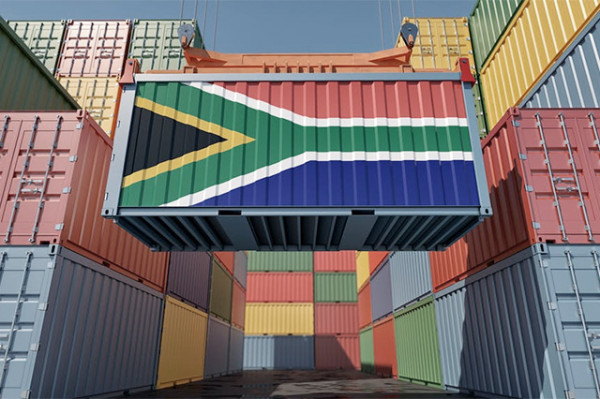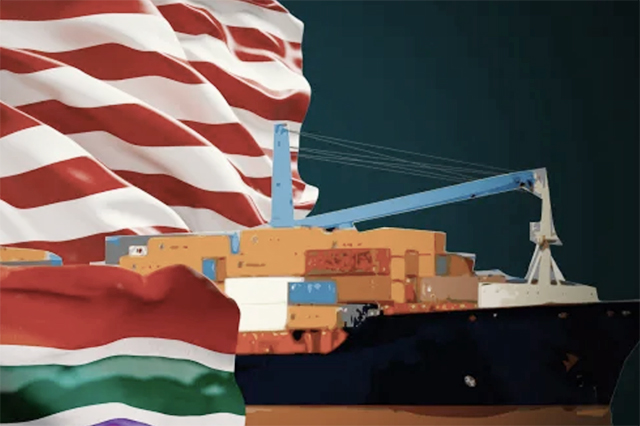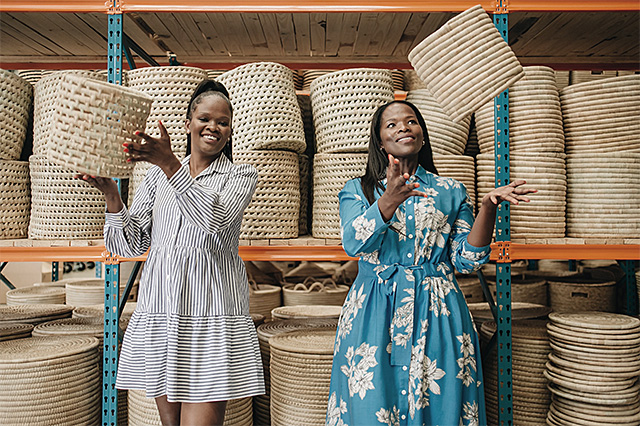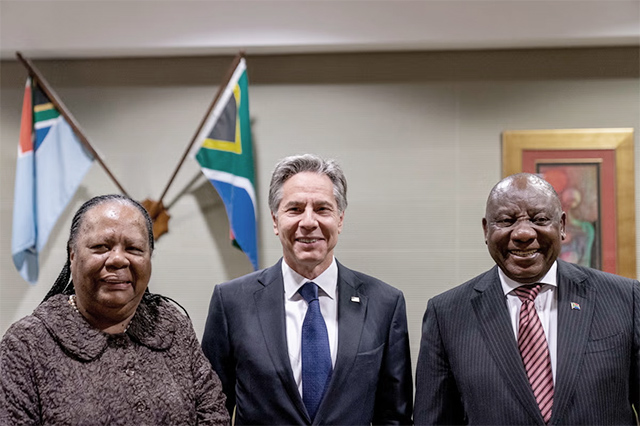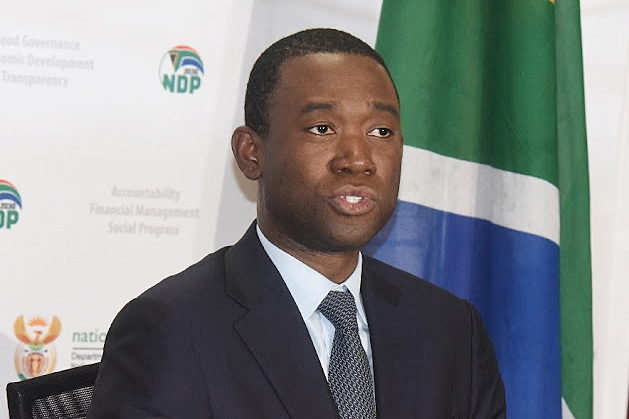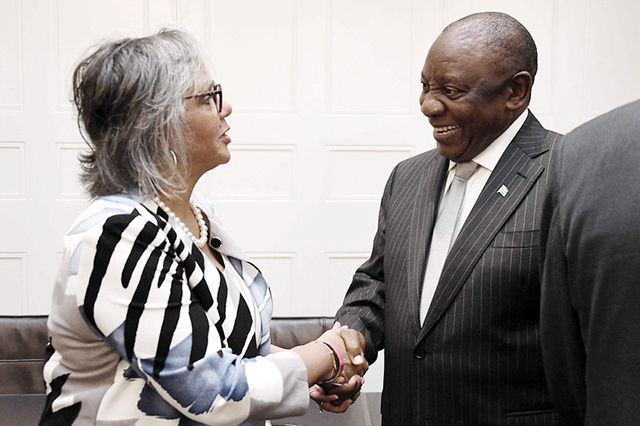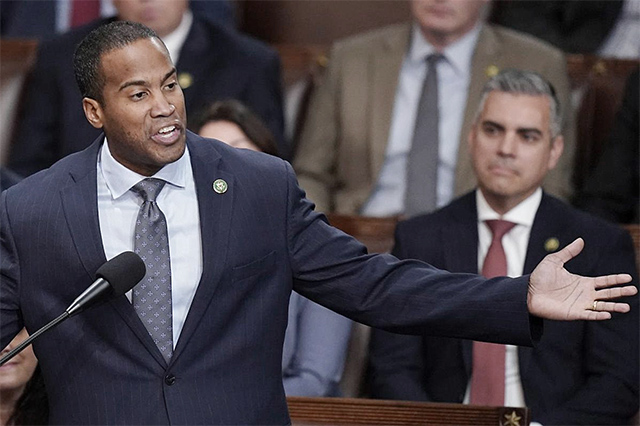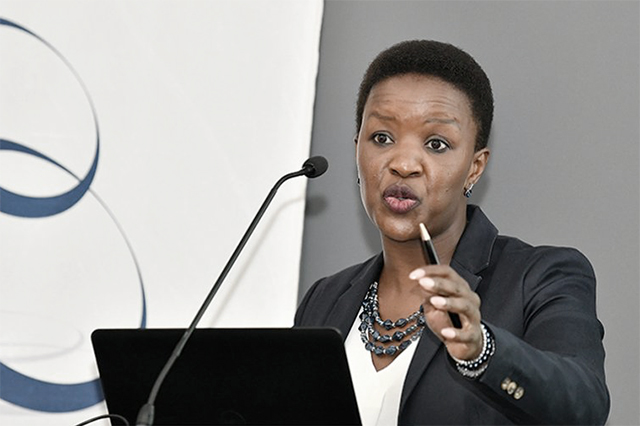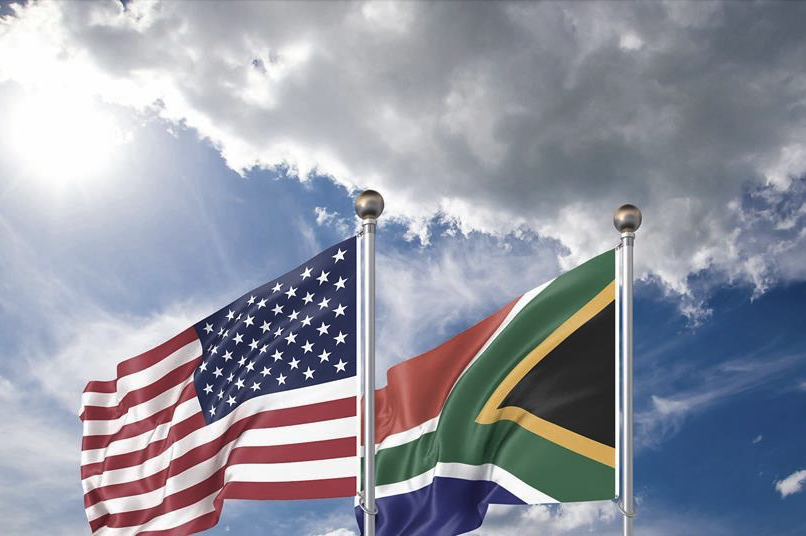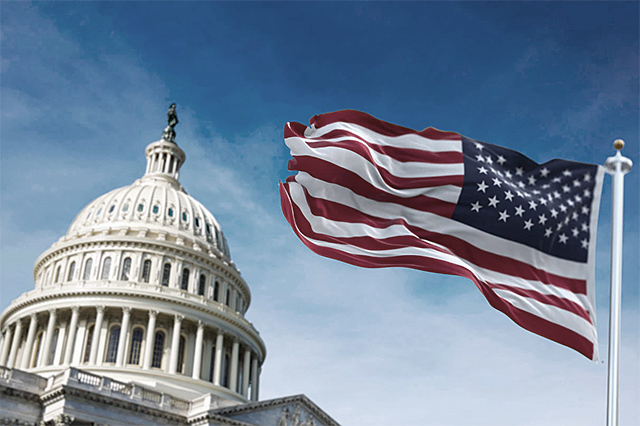'South Africa must get ready for an inevitable loosening of trade ties with the US'
In six months’ time the world’s gaze will be trained on what is gearing up to be a contentious and hotly contested presidential election in the US.
Irrespective of who emerges victorious between the incumbent President Donald Trump and the Democratic nominee Joe Biden South Africa needs to start thinking about what it stands to lose – or gain – from the new administration’s stance.
This is especially so in the area of economic relations.
Since 1994, trade and investment ties between the US and South Africa have evolved against the backdrop of a complicated political and diplomatic setting. This has ranged from:
- US disagreements with the Mandela government over its links with Cuba, Libya and the Palestine;
- to the huge promise of the binational commission chaired by Al Gore and Thabo Mbeki;
- to the bitter rancour over the Mbeki government’s HIV/Aids policies;
- to the deadlock over government-sponsored land invasions in Zimbabwe; and
- to the rifts over United Nations resolutions against Israel.
In 2003, the two countries failed to conclude a trade agreement amid mutual recriminations.
There have been successes along the way. These include America’s support of South Africa’s breakthrough in preventing bloodshed in Burundi and Pretoria’s leading role in the establishment of the African Union. But these have been outweighed by the low points.
Economic cooperation is the linchpin of the bilateral relationship. South Africa is America’s largest trade and investment partner in Africa. Over 600 American firms operate in South Africa. In 2017, US direct investment to South Africa was $7.3 billion, while the latter’s outward investment to the US amounted to $4.1 billion.
Under the African Growth and Opportunity Act (Agoa), trade between the two countries has thrived. Introduced by the Clinton administration in 2000, it allows African countries to export duty-free to the US market, provided these countries meet certain governance criteria. In 2018, total two-way trade was $18.9 billion, with South Africa recording a trade surplus of $2.1 billion.
But these fair winds might not blow forever. In light of the global shifts since the inception of Agoa two decades ago, US policy towards South Africa might in future be less generous and accommodating. South Africa would do well to make wise use of the remaining years of Agoa, which expires in 2025, to diversify its export markets and retool its economy.
Tetchy trade links
Agoa has been a boon for South African exports. Before its implementation, South African exports to the US consisted mainly of minerals and metals. Under Agoa exports have become diversified, including platinum, aluminium, steel, vehicles, wine and beer, fresh and processed fruit and vegetables, and essential oils.
Despite this progress, trade links have remained tetchy. The fractious relationship came under scrutiny when then Trade and Industry Minister Rob Davies met with his American counterpart, Michael Froman, in Paris in 2015 to seek a solution to a dispute that represented a litmus test in the changing trade dynamics between the two countries.
Dubbed the “chicken wars” the dispute centred on a demand by American chicken producers for their government to withdraw South Africa’s participation in Agoa. The call had been in response to the imposition by Pretoria of anti-dumping measures on US imports of chicken portions. Such measures are allowed under World Trade Organisation rules and are designed to protect domestic industries from unfairly priced imports.
Despite vociferous lobbying by chicken farmers against South Africa’s inclusion in a renewed Agoa agreement, the US senate approved a bill extending Agoa for 10 years, with South Africa included. In return, South Africa agreed to allow 65 000 tonnes of poultry imports from the US. Excluding South Africa from the new Agoa dispensation could have harmed the country’s trade.
Washington’s belligerent stance
Yet America’s trade policy towards South Africa is changing. This is underscored by the fact that although the US included South Africa in the revised Agoa it did so with stringent conditions. These included a stipulation that South Africa’s trade and investment policies would be subject to a review within 30 days of Agoa’s implementation. If the review found that the South African market was not sufficiently open to US products, the US could limit South Africa’s Agoa benefits or suspend its participation in the scheme. Significantly, the revised Agoa did not provide for increased access for South African products to the US market.
Washington’s increasingly belligerent stance had also been reflected in the array of demands it had made in its trade talks with Pretoria. Besides the row over chicken exports, the US pushed strongly for the withdrawal of the Private Security Industry Regulation Amendment Bill. The bill required foreign-owned security companies to sell at least 51% of their domestic businesses to South Africans.
The change in America’s trade posture towards South Africa is a consequence of global shifts as well as factors specific to South Africa. Agoa came into existence during globalisation’s finest hour and at the height of US economic boom. Since then, the global economic environment has deteriorated, and this has strengthened the influence of trade protectionists in the US.
Also, the US has been shaken by the rise of China as a formidable competitor. The US has used trade as a tool to reassert its position as the pre-eminent global economic power. The Trump administration’s debilitating trade war with Beijing should be viewed within that context.
In the case of South Africa, the Clinton administration’s rationale for including the country in the original Agoa scheme was to support its democratic consolidation and integration into the global economy. The US has, however, historically never regarded South Africa as a developing country in the same way it has viewed other African countries.
This American view of South Africa dates back to the post-war years when the country was seen as a part of the developed “western bloc” that shaped the new world order. It is for this reason that when South Africa, in the early 1990s, applied to the World Trade Organisation for reclassification as a developing nation the US, supported by the European Union and Japan, objected.
Early this year the Trump administration revived this historical position on South Africa and revoked the country’s “developing country” status [AGOA.info note: this changed status only relates to US trade remedies (subsidies) legislation, and not preferential trade]. This followed a similar decision by the US in respect of China and India. It means that these countries will no longer enjoy the preferential trade treatment extended to poor nations. A Biden electoral victory is unlikely to deviate from the path set by the current administration. Trade is one of the very few areas on which there remains strong bipartisan support.
Even self-proclaimed democratic socialists like Bernie Sanders have opposed free trade deals. Hilary Clinton, who lost against Trump in the 2016 poll, has a history of espousing inconsistent and ambivalent positions on trade. The outbreak of the coronavirus global pandemic, and the resultant damage it has inflicted on the US economy, will most likely reinforce bipartisan consensus on American trade policy.
What this means is that South Africa can no longer rely on Agoa as the centrepiece of its economic partnership with the US. Agoa is not a negotiated, reciprocal agreement: it is an American initiative that provides non-reciprocal trade preferences to African countries. The US can arbitrarily suspend or withdraw its benefits to participating nations.
- Mills Soko Professor: International Business & Strategy, Wits Business School, University of the Witwatersrand


